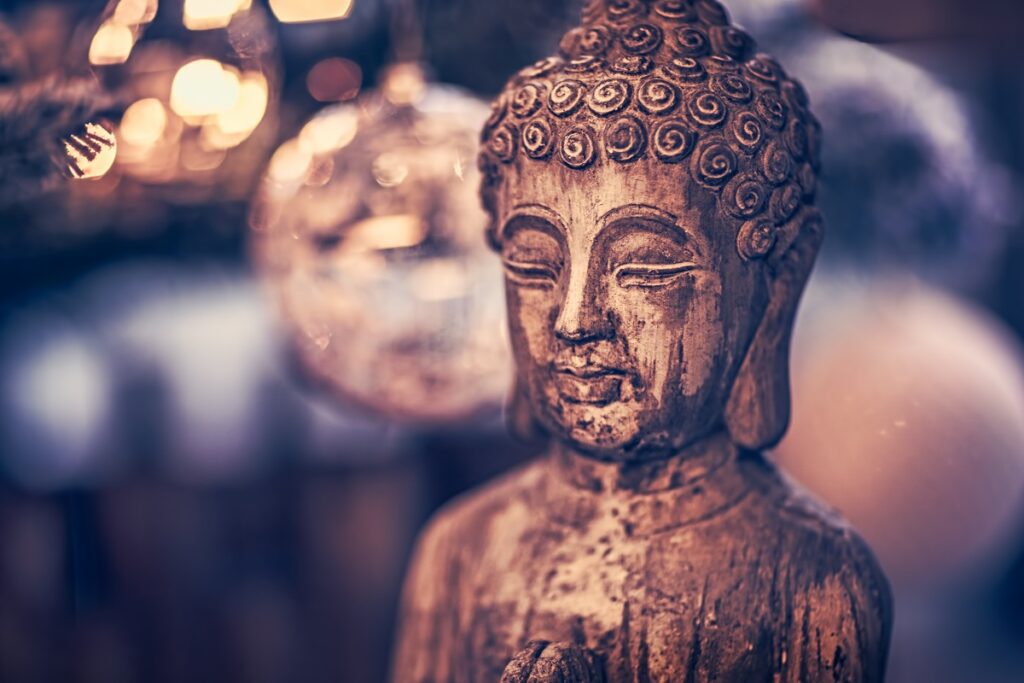Stress, worry, and negative thoughts are common in today’s fast-paced society. Mindfulness and positivity are key for happiness. Mindfulness means living in the now without worrying about the past or future. This can calm you in difficult situations.
Today, I want to cover twelve mindfulness mantras that helped me in MY journey. Basically, each mantra reminds you to stay present and remember that you can control your life – not the other way around. These mantras might help you develop resilience and contentment, improve your self-worth, and even gain the courage to explore the world.
The best part? They work for any age, gender, origins, religion, and any other variable you may think of. The only secret is to find out which one speaks to you on a personal level; to me, it took about a month of trial to discover that one mantra which truly changes my state of mind in a heartbeat. To you, it may be different – but either way it’s definitely worth trying!
Before we get into my top mantra recommendations, though, I wanted to take a moment to explain why I think this topic is so important:

Why Should Everybody Have a Mantra?
I think we’ve all heard the word ‘mantra’ in recent years, but many of us still can’t tell what it really is or how it works.
In short, mantras are self-affirming words or phrases that change the way you think in a specific moment. These magical words can boost our self-awareness, positivity, and stress relief. Think about it: just one simple mantra practiced daily can help you focus on the good and find inner peace and contentment. But how?
Well, to begin with, a mantra grounds you in a fast-paced, ever-changing environment. This simple habit might help you stay calm and grounded in a chaotic world – especially if you have a busy schedule. “I am in charge of my ideas” can be used to remind yourself to think good, empowered thoughts instead of negative, self-defeating ones.
Mantras can also improve self-awareness. Repeating your mantra can help you become more aware of your thoughts and actions and identify patterns that are holding you back. For example, if your mantra is “I choose peace,” you may notice when you react to stress or worry in ways that go against your purpose. Meanwhile, things like “I am worthy of love and happiness” can be used to combat negative self-talk and boost self-esteem.
A mantra can help you, your relationships, and even the planet. Focusing on good, loving thoughts and actions can create a ripple effect of happiness and kindness. Here’s an example: if your mantra is “I choose love and kindness,” you can use it to direct your actions and relationships to create a more loving and compassionate environment. After all, we have to be the change we want to see in the world, right?
But then of course, we all have different goals and beliefs (which is perfectly normal). This brings me to my next question which I’ve heard at least a dozen times from the community:

Which Mantras Might Work Best for You?
Hinduism, Buddhism, and Sikhism cultures have been using mantras for centuries. But if you’re like me, those mantras don’t really ring a bell to your inner core, right? To be honest, it took me quite some time to figure out which words and phrases can actually be powerful mantras for my case. Since everybody is different, here are the top 12 mantras everybody might benefit from daily:
“Enough.” This mantra affirms your self-worth. Perfectionism and comparison are so common yet so unnecessary! Accepting your flaws might help you overcome self-doubt and negative self-talk.
“Peace.” This mantra reminds you that you have to power to choose calm in any situation. You can stay calm no matter what’s going on around you even when it doesn’t feel like it!
“I control my ideas.” Thoughts shape our feelings and the way we see the world. Reminding yourself that you control your ideas allows you to select positive, empowered thoughts over negative, self-defeating ones.
“I’m curious.” Openness to new experiences can broaden your view on life in general. Let go of fear and venture outside your comfort zone to find new possibilities and flourish. No matter the age, culture, or financial possibilities, it’s never too late!
“I let go.” Trying to control life’s uncontrollables can cause tension and worry. Letting go of what you cannot control frees up mental and emotional energy to focus on what you can and improve your life.
“I’m grateful.” Gratitude boosts positivity and it reminds us there’s a bigger picture to look at. For example, if you get angry for breaking a glass, you might be thankful that you have a kitchen in the first place! Silly as it may seem, this works – trust me.
“I deserve love and happiness.” This phrase reminds you that you deserve love and happiness. This reality helps you overcome self-doubt and negative self-talk and focus on self-love and positivity.
“I trust the route of life.” Life is full of twists and turns, making it easy to become fearful and apprehensive. You can submit to life’s flow and find calm in the now by trusting the journey and letting go of control.
“Love and kindness.” Kindness and love can change our world. You may spread positivity by loving yourself and others.
“I’m flexible.” Change is hard but natural. By accepting change and letting go of resistance, you can grow and transform in even the most difficult situations.
“I’m here.” Mindfulness means living in the now without worrying about the past or future. Reminding yourself to be present can help you appreciate the present. Instead of looking ahead or back, embrace life as it happens.
“Loved and enough.” This final mantra combines the first two mantras to remind you that you are loved and enough. By accepting this reality, you can live a happier, more peaceful life full of self-love.
Do you have a favorite mantra, or just a thought you always use to stay calm in stressful situations or to feel better in general? If so, let us know in the comment section – we’d love to hear and learn from every experience!
Read more about mantras: Top 5 Most Popular Mantras (and Their Real Meanings)









